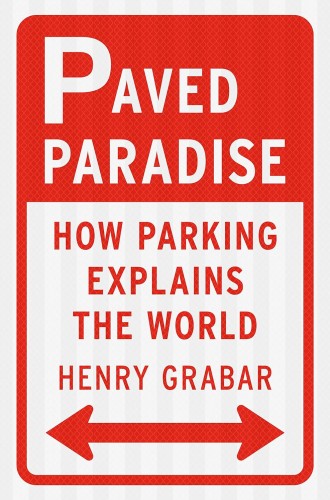The cost of parking
Henry Grabar makes the case that in nearly any realm, from the environment to the economy, justice starts with parking reform.
As a parent and a pastor of a multigenerational church, I know that when teenagers approach their chores (in the church, we call this volunteering) they do so with this simple question in mind: What is the least I can do, yet still have an impact? This is a question Henry Grabar asks repeatedly in Paved Paradise, and the answer is always parking.
Parking reform is the place where you can do the least amount of work and still make significant changes. Grabar writes, “If you want lower emissions and fewer car accidents, parking is the place to start. It’s not the only way to get fewer people to drive. But because every trip ends with a parking space, it’s the easiest.” As it turns out, if you want to work for justice in nearly any realm, from the environment to the economy, you should start with parking.
Read our latest issue or browse back issues.
Parking is ubiquitous, but no one really knows how much parking there is in America. Counterintuitively, Des Moines, Iowa, has as many parking spots as Seattle. In New York City, nobody is quite certain how many street-level parking spots the city owns: numbers vary from somewhere between 1 million and 3 million spots. Since there is no real hard data on the number of parking spots, cities do not know how to adequately price them. In 2008, the City of Chicago leased its parking meters to Morgan Stanley for 75 years for more than $1 billion—only to discover later that they had underestimated the value of the parking by at least half.
The two easiest parking policy changes every American city could enact are increasing the price of parking and abolishing parking minimums. Rather than provide a pamphlet on these policies and how to change them, Grabar tells us the story of parking in America. Along the way to these reforms, we meet a parking garage owner and low-income housing developers, hear stories from New York City parking attendants, get educated by Donald Shoup (the prophet of parking reforms), find ourselves surprised that there’s a trade publication called Parking Today, and learn to appreciate many other personalities in the parking world. These stories and personalities are needed because they show the mess we are in when it comes to parking and reveal how enacting reform will not be easy. As Grabar puts it, “We expect parking to be immediately available, directly in front of our destination, and most importantly, free.”
This expectation leads to a number of problems. We often treat free parking on public streets as private property. During the winter in many northern American cities, car owners use kitchen chairs, pylons, mannequins, and couches to reserve the on-street parking spots they regard as their own. My neighbor in Minneapolis gets mad and calls the police when someone parks in “his spot” on the street in front of our houses. Contrary to these behaviors, private individuals do not own on-street parking places. They are a public good; we all “own” them.
At the same time, we expect parking spaces (whether public or private) to be used solely for the temporary storage of automobiles. British cartoonist Dave Walker once drew a cartoon called “Storage” to illustrate this absurdity.
Individuals can place their private property on public land, but only if that property is a vehicle. We can’t use parking spots to store a wardrobe of old clothes or boxes of odds and ends or used appliances. We can store our cars and only our cars.
Fortunately, this trend is starting to change, thanks in part to the efforts of churches. Some churches are converting their parking lots from the temporary storage of cars to the permanent housing of neighbors. In Minneapolis, Calvary Lutheran Church’s parking lot (located a block from George Floyd Square) is now affordable housing; in St. Paul, Prince of Peace Lutheran Church’s parking lot now hosts two tiny homes for those who previously experienced homelessness; and in Asheville, North Carolina, First Baptist Church and the YMCA have entered an arrangement to develop their shared parking lot into an urban village.
Abolishing parking minimums (rules about how many parking places must be placed in lots with new construction) may seem as easy as hitting the delete key, but Grabar notes how deeply they are baked into our building codes. These guidelines are as varied and nonsensical as the flavors of sugary cereals at the grocery store. They add between $19,000 and $30,000 per structured parking space to the cost of housing developments and commercial projects. Grabar shows that when parking minimums are abolished, as Los Angeles and Minneapolis and Cleveland have done, affordable housing and community flourishing quickly follow.
I once heard a church growth guru say, “The key to your church’s growth is not how great your sermons are (although that helps) or if your choir sings on key (although that helps too). The key is in the details. Are there typos in the bulletin? Is the front door accessible? Are the signs clear?” Parking may seem like a boring detail for a church to focus on, but it’s a detail that yields extremely high returns.
Most of the interest in my writing about church parking has come from urbanists, place makers, and city planners. They frequently tell me that they want to partner with faith communities to bring about healthier and thriving neighborhoods, but when they reach out, nobody returns their calls or emails. Reading Grabar’s book might help faith communities enter into public conversations about a future that is less car-centric and more community-centric. To my ears, this sounds a lot like the gospel.







